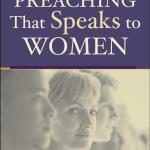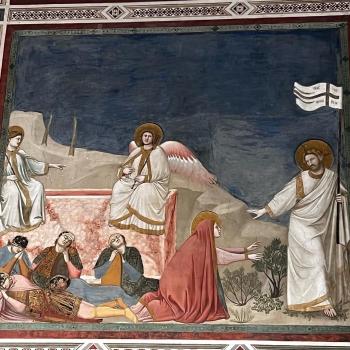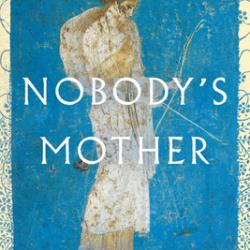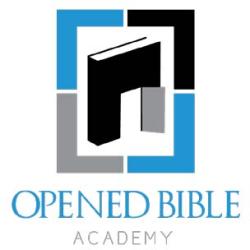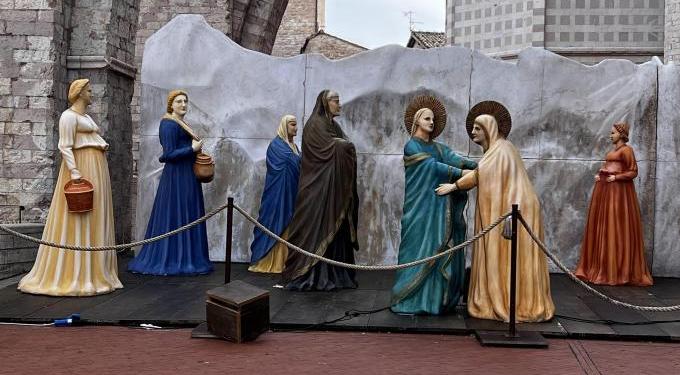
For hundreds of years, the church worldwide has celebrated the Visitation—the meeting of Jesus’s mother, Mary, with her cousin Elizabeth, disciples putting their faith on display.
The biblical text of Luke 1:39–56 tells the story:
In those days Mary set out and hurried to a town in the hill country of Judah where she entered Zechariah’s house and greeted Elizabeth. When Elizabeth heard Mary’s greeting, the baby leaped inside her, and Elizabeth was filled with the Holy Spirit. Then she exclaimed with a loud cry, “Blessed are you among women, and your child will be blessed! How could this happen to me, that the mother of my Lord should come to me? For you see, when the sound of your greeting reached my ears, the baby leaped for joy inside me. Blessed is she who has believed that the Lord would fulfill what he has spoken to her!” (vv 39–45)
A Holy Spirit Encounter
Let’s set the stage: the young woman, Mary, likely between the ages of 13 and 16, had just received a visit from the angel Gabriel, who brought news that God had chosen her to bear his Son, the Messiah. Though unsure of the process, since she was not yet married and sexually active, she behaved like a disciple, accepting God’s call on her life: “May it happen to me as you have said” (Luke 1:38). Shortly thereafter, she headed off to see Elizabeth, whose story of a miraculous pregnancy Gabriel had told her.
When the two women met, the Holy Spirit filled Elizabeth and gave her prophetic insight that Mary was carrying the savior. The immensity of their meeting reverberated through her body, as her own baby in-utero (John) chose that moment to practice his trampoline skills. The presence of the savior, even hidden and being knit together in Mary’s womb, was a powerful experience. Two women, were the first to celebrate God’s faithfulness in keeping his promise to send his Anointed One.
Why Call Mary a Disciple?
In case you are wondering, the word disciple means follower, and it applies to many people, not just the original twelve men and countless others who traipsed around Israel with Jesus. You and I, if we believe Jesus is God and entrust our lives to his saving grace, are disciples.
Immediately upon greeting her, Elizabeth acknowledged Mary’s obedience and faith: “Blessed is she who has believed that the Lord would fulfill what he has spoken to her.” Some in church history have claimed that God chose Mary because she was sinless and perfect from birth, God making her that way the Messiah needed to come from a sinless human. Pope Pius IX formalized this teaching, called the Immaculate Conception, as dogma in his papal bull Ineffabilis Deus in 1854.
Such teaching contradicts Romans 3:23–24, “All have sinned and fall short of the glory of God, and all are justified freely by his grace through the redemption that came by Christ Jesus.” Nothing in Scripture hints at Mary’s moral perfection; rather, she is depicted as a devoted disciple. While her motherhood of Jesus catapulted her into the spotlight of history, it alone is not what makes her “blessed among women.”
Recall verse 45: Blessed is she who has believed that the Lord would fulfill what he has spoken to her!
Later, Jesus himself alluded to his mother’s faith when an enthusiastic woman, listening to his teaching, raised her voice and told him, “Blessed is the womb that bore you and the one who nursed you” (Luke 11:27). The woman was honoring Mary, saying in effect “She did a great job with you and you do her credit!” To bear children and raise them to adulthood, much less into teachers like Jesus, was honorable and praiseworthy. But Jesus responded with a bit of a twist.
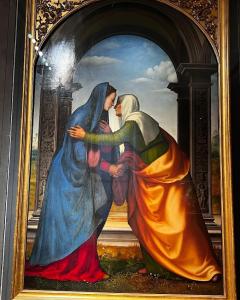
“Rather, blessed are those who hear the word of God and keep it” (11:28). I believe he was speaking of his mother in that moment. Mary had heard God’s call and accepted his will. Her “fiat” was the yes that changed history. Jesus took the praise directed at her motherhood and refocused it on her discipleship. The Greek word menoun, translated “rather” in most English Bibles, can but does not have to signify something contrary. The word also carries the connotation of “so, therefore, accordingly.” When we think of Mary’s submission to God’s call that she be the Messiah’s mother and her faith that he would keep his word (as Elizabeth said), Jesus’s description of a blessed person applied overwhelmingly to his mother.
Was Mary blessed because she was Jesus’s mother? Yes.
Was Mary blessed because she said Yes to God’s call? Yes.
Was Mary blessed because she gave her life to love and serve Jesus? Also yes.
For more on Mary’s Magnificat, which also occurred at the Visitation, check out my previous article as well as a creative rendition of it in The Chosen episode “The Messengers” (starting at 26:30).

